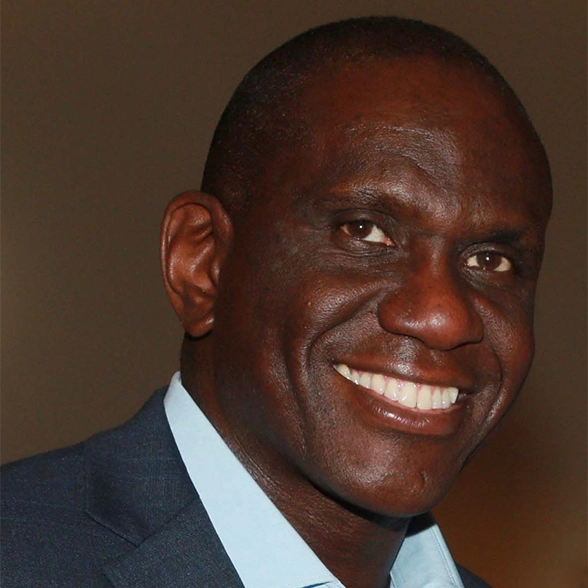
The ER Summit
May 23, 2025
Inova Center for Personalized Health
8100 Innovation Park Drive, Fairfax VA 22031
The ER Summit will focus on fostering enhanced collaboration between Emergency Medical Services (EMS) and Emergency Room (ER) professionals to improve patient care and health outcomes. This event will provide a platform for key healthcare stakeholders to discuss and implement strategies aimed at supporting both frontline workers and the patients they serve.
The summit will feature expert discussions, hands-on workshops, and presentations centered on effective communication, workflow optimization, and coordinated response between EMS and ER teams. Additionally, it will address the critical importance of mental health support for healthcare workers, emergency preparedness, and innovative care models that can contribute to reducing bottlenecks in emergency departments and improving patient outcomes during high-stress situations. The goal is to create a unified approach that ensures better cooperation and resource management, benefiting healthcare workers and patients alike.
Attendees will leave the summit equipped with practical tools, best practices, and strategic insights to foster long-term partnerships and enhance emergency care systems at local, regional, and national levels.
*complimentary breakfast & lunch will be provided
Keynote Speaker

Silas Grant
The 360° Edge: Wellness & Mindfulness for Peak Performance in Life
In today’s fast-paced world, achieving peak performance requires more than just ambition—it requires a balanced approach to wellness and mindfulness. In this interactive breakout session, Silas Grant will guide you through the five key pillars that drive success: focus, resilience, emotional intelligence, creativity, and sustainable energy. Learn practical strategies for integrating wellness into your daily routine to enhance mental clarity, manage stress, and stay productive over the long term. Whether you’re an entrepreneur, leader, or someone looking to elevate your personal and professional life, this session will provide the tools you need to cultivate the 360° edge that supports lasting peak performance.
Room 3 | 9:15 AM – 10:10 AM
Speakers

Holly O’Byrne
Revolutionizing Emergency Response: How Whole Blood and Strategic Partnerships are Shaping DC's Fight Against Violent Crime
Over the last decade, the homicide rate in Washington, DC, skyrocketed by a staggering 161%, creating a critical crisis for both the community and the DC Fire Department. In the face of the escalating emergency, finding a solution became imperative through forging crucial external partnerships and ensuring the representation of vulnerable populations to ensure health equity, the implementation of prehospital whole blood became the groundbreaking answer. The seminar takes you through a clinical case of a patient who, without the use of whole blood, would not have survived their injuries. Join us as we explore the transformative journey in prehospital medicine – where each decision holds the weight of life and death and collaborative innovation redefines emergency response in the heart of the nation’s Capital.
Room 4 | 10:15 AM – 11:00 AM

Dr. David Vitberg
To Err is Human: Building a Safer EMS System Through the Adoption of a "Just Culture"
Medical errors can be overwhelming for EMS providers leading to intensive feelings of guilt, humiliation and worthlessness. When investigations by supervisors aren’t performed properly EMS providers can easily become “second victims”. When a medical error occurs its critical to understand why it happened and identify solutions to minimize risks to future patients. “Just Culture” refers to a values-supportive system of shared accountability where health care organizations are accountable for the systems they have designed and for responding to the behaviors of their employees in a fair and just manner. Employees, in turn, are accountable for the quality of their choices and for reporting both their errors and system vulnerabilities. Come learn how the DC Fire and EMS Office of the Medical Director has adopted a “Just Culture” approach to cases it reviews and how this approach has already paid dividends on making EMS care safer in the District.
Room 5 | 10:15 AM – 11:00 AM

Dr. Alexander Evans
Leading From the Trauma Bay
Room 6 | 10:15 AM – 11:00 AM
Dr. Alex Evans is a trauma and critical care surgeon with over 20 years of experience, currently serving as the Trauma Medical Director at Howard University Hospital. His career spans from bedside care to public health, with a particular focus on innovation and the transformative role of technology in the future of medicine.
Dr. Evans received his medical degree from the University of Florida and completed surgical training at the University of Illinois at Chicago and Johns Hopkins. He furthered his administrative education at the University of Illinois and the Harvard Business School. During his distinguished service in the U.S. Navy, he rose to the rank of Commander and served in the Middle East and Afghanistan.
As a medical director, Dr. Evans successfully led a trauma center to national accreditation and now leads two medical technology companies. His research focuses on clinical decision-making through the application of artificial intelligence. He is a sought-after speaker on public health issues, including gun violence, injury prevention, and the integration of AI in healthcare.

Jamie Gillespie
Code Collaboration: Don't Drop the Beat
This session will explore common breakdowns in prehospital-to-hospital transitions and strategies to enhance teamwork, documentation, and efficiency during codes.
Room 4 | 11:05 AM – 11:50 AM

Justin Ajose
Bridging the Gap
As emergency call volumes and patient transports reach record highs, the connection between EMS and hospital care has never been more critical. Bridging the Gap explores the often-overlooked disconnect between pre-hospital and clinical care—and how stronger collaboration can improve patient outcomes.
This presentation highlights the importance of shared understanding, communication, and mutual respect between first responders and emergency department teams. Drawing on the dual perspective of both EMS and clinical provider, the discussion focuses on practical ways to align field and hospital operations through joint training, case continuity, and cultural integration.
By fostering a unified approach to emergency care, Bridging the Gap aims to create a seamless, patient-centered experience from the field to the hospital doors.
Room 5 | 11:05 AM – 11:50 AM


Jeffrey Uribe & Jennifer Poole
Seconds Matter: How One Hospital is Beating the Odds on Ambulance Offload
When hallways are full and the emergency department is bursting at the seams, ambulance offload delays can feel inevitable. But what if they aren’t? Join us for a behind-the-scenes look at how one hospital is rewriting the playbook—using smart quality improvement strategies to speed up patient offloads without waiting for the ED to get less crowded. Discover how they’re improving flow and turning system strain into system change. This workshop isn’t just about what’s broken—it’s about what’s working.
Room 6 | 11:05 AM – 11:50 AM
Jeffrey Uribe MD, FAAEM, FAEMS is a dedicated EM/EMS physician and healthcare educator with a passion for bridging the gap between prehospital and hospital care. With extensive experience in emergency medical services, he brings a unique perspective to interdisciplinary collaboration. Dr. Uribe is committed to fostering communication and teamwork between EMS providers, emergency department staff, physicians and nurses to enhance to patient outcomes and streamline care transitions. He currently works at Washington Hospital Center as EMS liaison and at Montgomery Medical Center as EMS Base Station Medical Director. He is also Medical Director for Caroline County Emergency Services.
Jennifer Poole BSN, RN, CEN is the Assistant Nursing Director of the Emergency Department at MedStar Washington Hospital Center, where she oversees daily operations and leads a high-performing team in a busy urban ED. In addition to ensuring exceptional patient care and staff development, Jennifer plays a key role in supporting EMS partners, streamlining ED handoffs and fostering a collaborative, safety-driven environment.

James Tate
Food Is Fuel
This presentation will motivate, educate and inspire those in attendance to improve their nutrition by teaching how to read a food label, ingredients to avoid in packaged foods and the healing powers of fruits and vegetables.
Room 3 | 12:20 PM – 1:05 PM (Midday Main Session)

Alexis Webster
What's Happening? Recognizing Bottlenecks in the Emergency Department and Optimizing Workflows
This presentation will explore emergency department and hospital throughout, examine how bottlenecks form, and discuss their impact on patients, EMS, and surrounding facilities. It will also highlight how optimizing workflows can lead to improved patient outcomes.
Room 5 | 1:10 PM – 1:55 PM


Gabe Gan & Kelsey Dawson
From Curb to CT: Strengthening EMS-Hospital Partnerships in Stroke Care
“Timely stroke care depends on seamless coordination between EMS and hospital teams. In this session, Kelsey Dawson (Georgetown University Hospital) and Gabe Gan (DC Fire and EMS) will share how collaborative initiatives—like immersive stroke simulations, joint Paramedic Grand Rounds, a standardized feedback process, and a citywide EMS stroke training video—have strengthened the EMS-to-ER handoff and improved patient outcomes. Attendees will leave with practical ideas to build meaningful hospital-EMS partnerships in their own systems.”
Room 4 | 1:10 PM – 1:55 PM
Gabe Gan, MPH, NRP, currently serves as EMS Quality Improvement Analyst with DC Fire and EMS, where he structures, executes, and evaluates EMS quality improvement projects and novel clinical programs. His portfolio includes a range of initiatives in stroke and cardiac care, electronic health record transformation, ambulance patient offload efficiency, and mobile integrated health. In addition to his quality improvement work, Gabe continues to practice clinically as a Nationally Registered Paramedic.
Prior to joining DC Fire and EMS, Gabe spent over three years as a consultant with PricewaterhouseCoopers Health Industries Advisory. There, he worked with some of the Nation’s largest payers and providers on health simulation and modeling projects, technology implementations, and public health initiatives.
Gabe received his Bachelor of Arts in Human Health from Emory University and earned his Master of Public Health from Columbia University’s Mailman School of Public Health.
Kelsey Dawson, BSN, RN, SCRN, CCRN, is the Stroke Program Coordinator at MedStar Georgetown University Hospital, a certified Comprehensive Stroke Center. In this role, Kelsey collaborates with physicians, nurses, and interdisciplinary teams to deliver expert clinical nursing care and technical support for neurological and stroke patients. She is an expert clinician who provides leadership for the nursing care and management of stroke patients, develops and provides stroke education, and coordinates community outreach programs for stroke prevention. With over a decade of experience in neurological and critical care nursing, Kelsey earned her BSN from James Madison University. She is also an active member of the DC Stroke Collaborative, which includes all DC hospitals, the American Heart Association, and the DC Fire and Emergency Medical Services.

